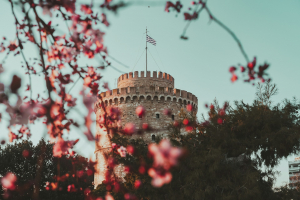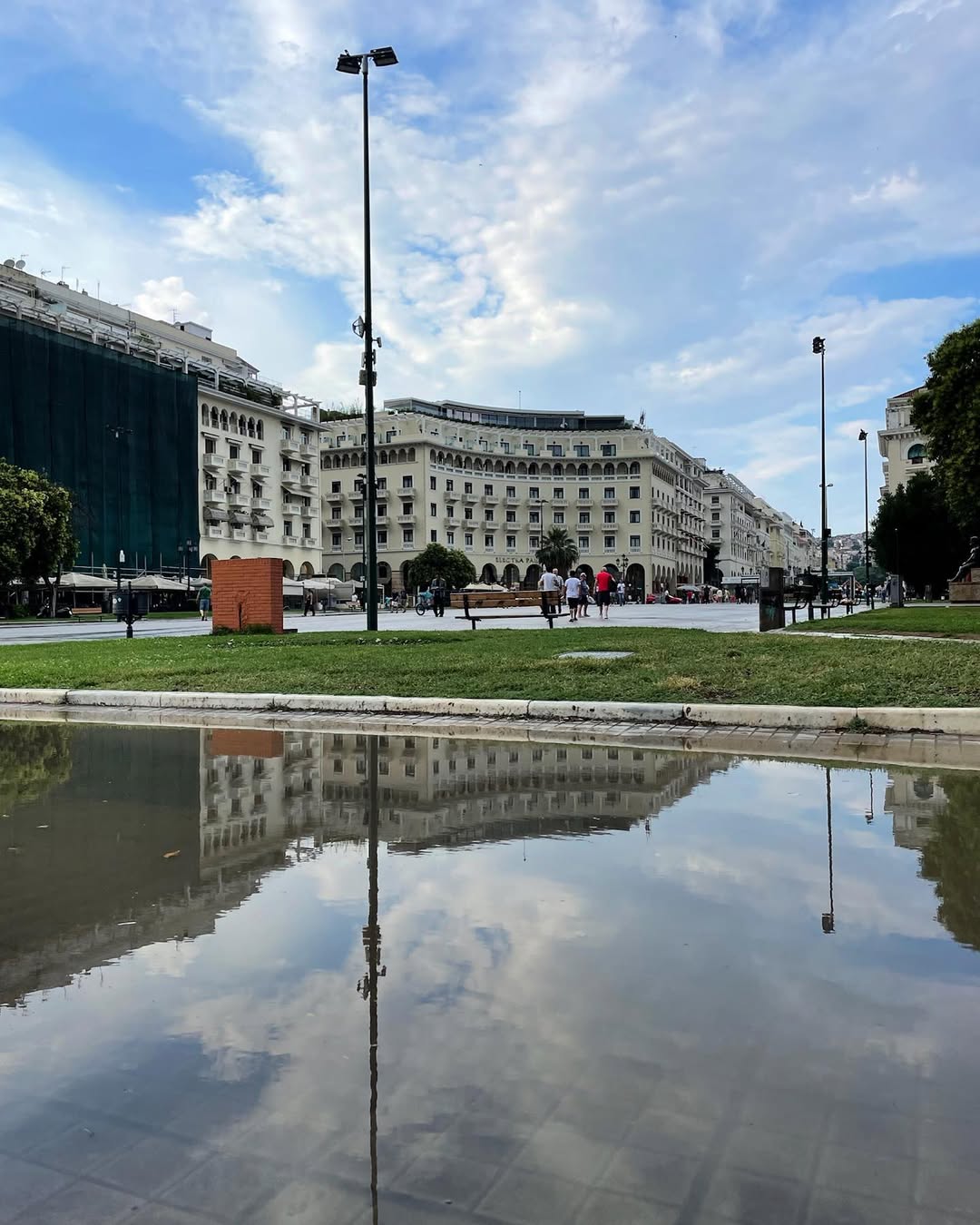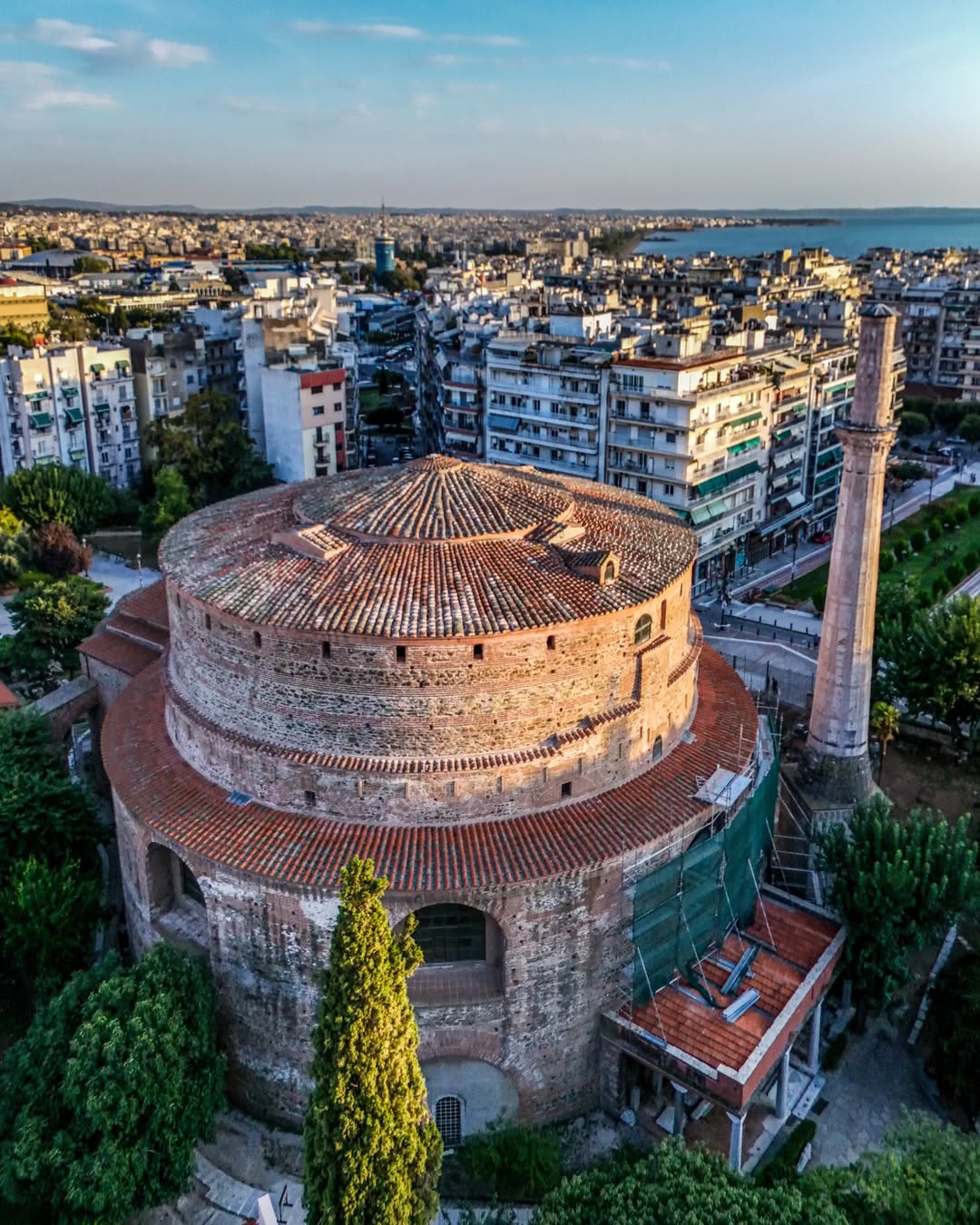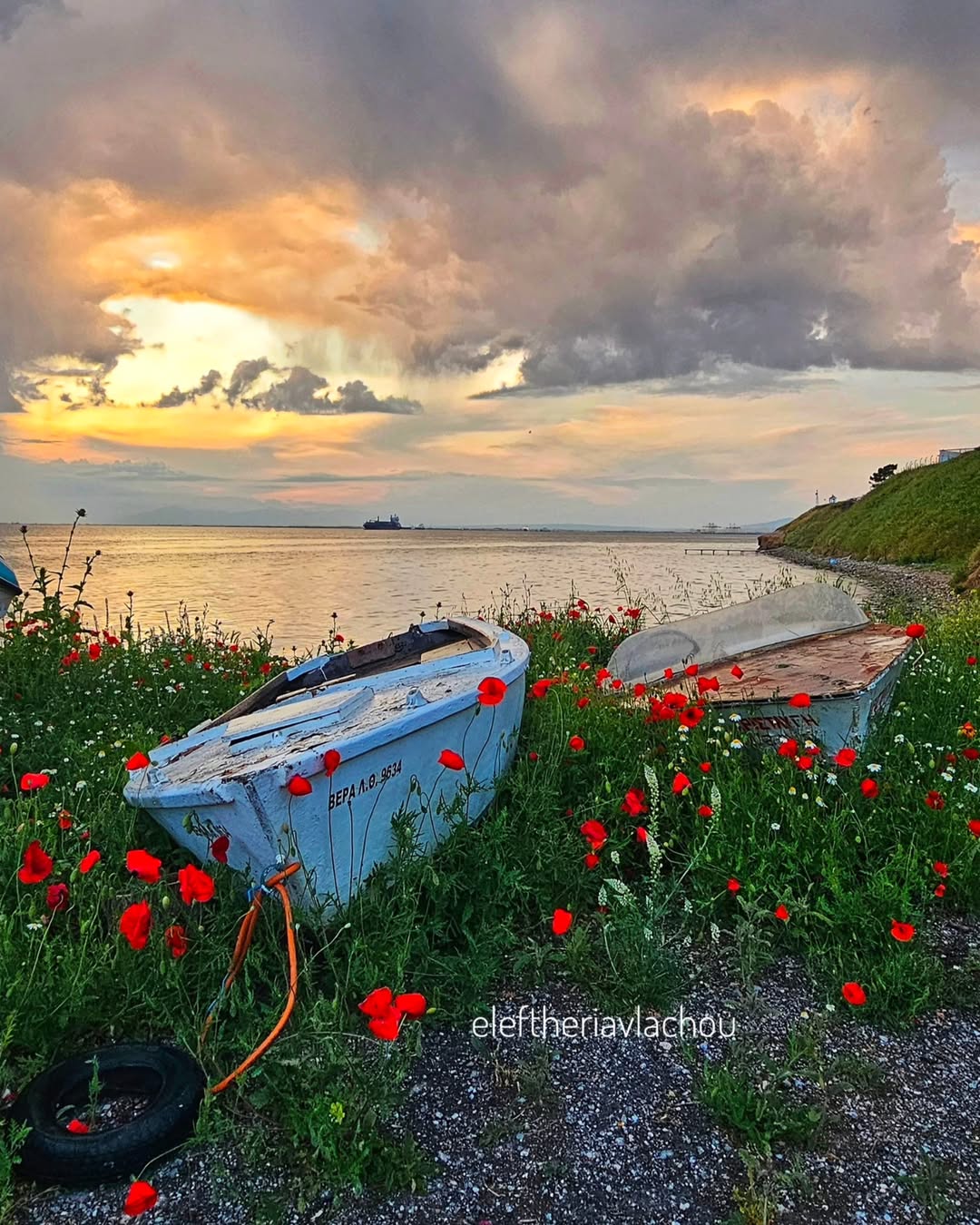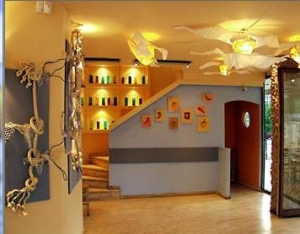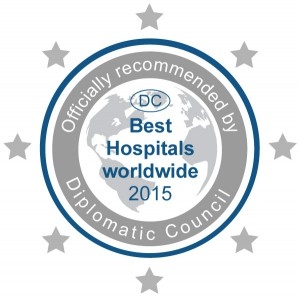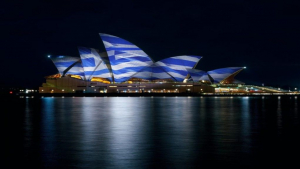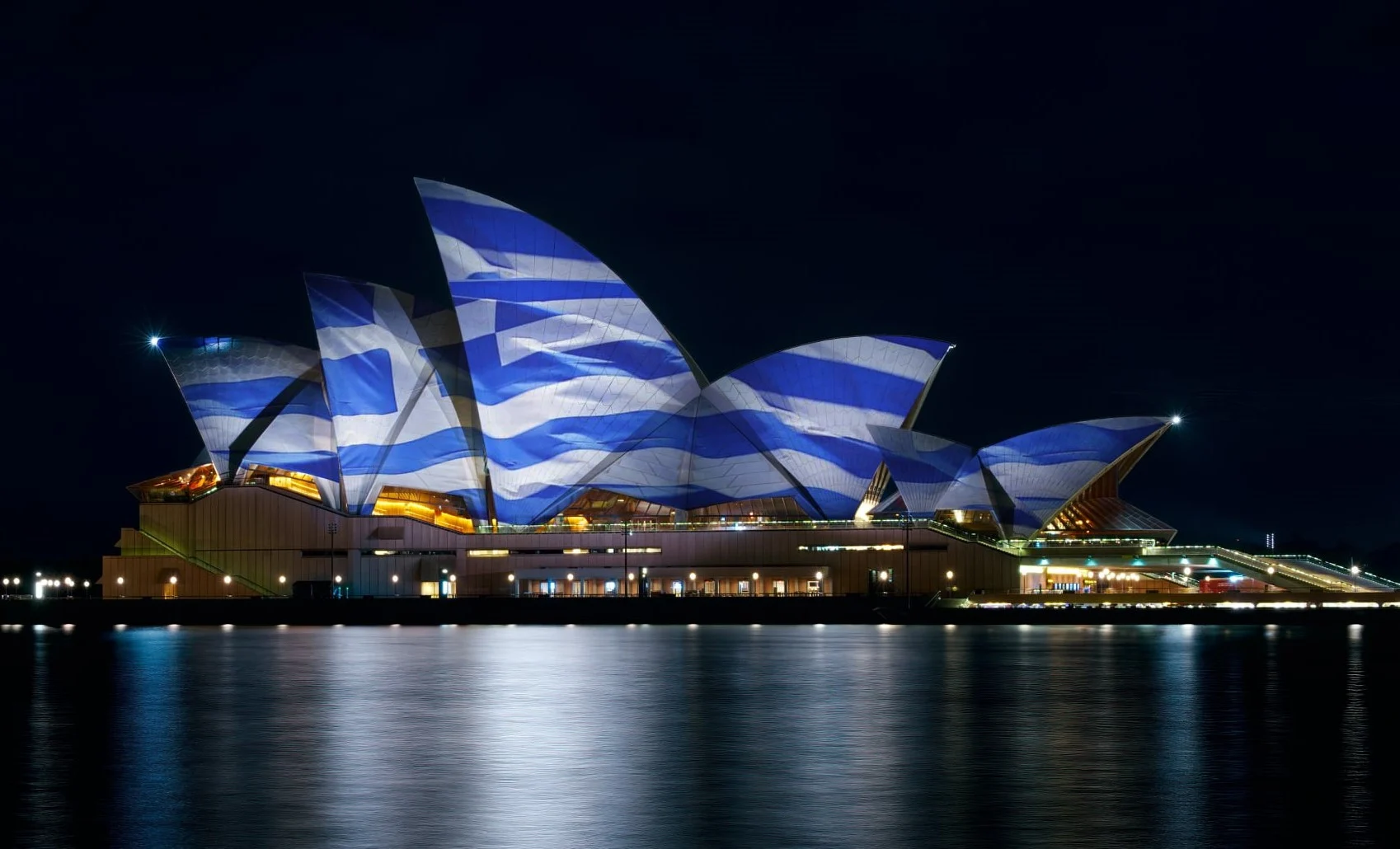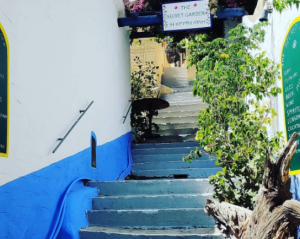An educational programme run by the Onassis Foundation helps children with autism spectrum disorder (ASD) familiarize themselves with the procedures involved in air travel.
Have you ever wondered how easy or difficult it is for a child with autism to cope with the various procedures involved in travelling by air? What about having to process the multitude of sensory stimuli with which they are bombarded in an airport feels like? Do you know how you could help if you found yourself next to a child or adult with Autism Spectrum Disorder and they reacted in an intense and unexpected way brought on by airport-related stress?
For a child or adult with ASD, air travel isn't always about recreation or relaxation, as both children and adults are often required to travel long distances for crucial treatment. Unfortunately, the stressful nature of air travel (the electronic arrivals and departures boards, the noise, the constant movement from one place to another, the waiting and delays, the take-off and landing procedures, possible in-flight turbulence etc.) very often mean these vital trips cannot be made. It is no surprise that parents of children with ASD are hesitant about choosing to travel by air. The fact that roughly 1 in 68 children in the general population are currently diagnosed as being on the autism spectrum makes this an issue that impacts on a lot of people. Indeed, given that our approach to autism is both a reflection of our culture and our education as individuals, it is ultimately relevant to us all.
Intent on enabling children with ASD to spread their wings and prepare to fly, the Onassis Foundation has created an innovative educational programme, "Boarding Pass to Autism", which consists of the following elements:
1) an air procedures simulation for children with autism
2) an educational resource for therapists and parents of children with ASD which consists of social stories
3) a training course delivered to staff at Athens International Airport
4) a leaflet created to raise air travellers' awareness of autism.
The educational programme was created by the Onassis Foundation in association with Athens International Airport under the academic aegis of Athens University and with the generous support of AEGEAN. The programme's two academic leads are Dr Aggeliki Gena, a Clinical Psychologist and Professor of Psychology at Athens University, and Dr Katingo Hadjipateras-Giannoulis, a Clinical Psychologist
Affiliate Fellow of the British Psychological Society.
The programme was presented in detail at a scheduled Press Conference held in the Media Centre at Athens International Airport on Thursday 29 March 2018.
1) ON APRIL 2, INTERNATIONAL AUTISM DAY, CHILDREN WITH ASD WILL SPREAD THEIR WINGS AND PREPARE TO FLY!
It all started with an open call for participation issued by the Onassis Foundation. The call brought together a group of children who, along with their therapists and parents, set about preparing themselves for air travel by means of an integrated desensitization programme. The programme will culminate on Monday 2 April, World Autism Awareness Day, with the children visiting Athens International Airport, along with their parents and therapists, for an air procedures simulation. The simulation will begin at the entrance to the Departure terminal and include all the stages involved in preparing to fly. The 30 or so participants will end up aboard an AEGEAN aeroplane where everyone—children, parents and therapists—will follow the prescribed procedures and safety instructions that precede take-off. The air procedures simulation gives children and teenagers with autism and their families an opportunity to familiarize and prepare themselves for the various procedures involved in air travel (the security and baggage check etc.) and with the multiple stimuli (from the electronic departure and arrivals boards to public announcements and airport signage). However, the April 2 simulation marks a beginning not an end as the innovative handbook we created for the programme will continue to provide parents and therapists of children with autism with a unique educational resource in the years to come.
2) SOCIAL STORIES HANDBOOK A GROUND-BREAKING EDUCATIONAL RESOURCE FOR PARENTS AND THERAPISTS
The "Boarding Pass to Autism" programme also included the creation of an innovative educational handbook consisting of social stories (Gray, 1991) which could become an important tool in the hands of therapists and parents around Greece. The stories were created by the Onassis Foundation under the academic aegis of Athens University.
What are social stories?
They are short predominantly visual stories which present specific scenarios to enable people with autism develop and improve their social understanding. They depict descriptions of a particular situation, event or activity, which include specific information about what to expect in that situation and why.
Using photographs and/or other visual information, Social Stories help improve the behaviour of children by making novel social situations more manageable and predictable. This in turn will enable them to confront challenging social situations and will reduce any potential anxiety and stress.Using photographs and/or other visual information, Social Stories help improve the behaviour of children by making novel social situations more manageable and predictable. This in turn will enable them to confront challenging social situations and will reduce any potential anxiety and stress.
3) TRAINING SEMINARS FOR ATHENS INTERNATIONAL AIRPORT STAFF
The programme also included training for both Athens International Airport (via the various service providers) and AEGEAN staff in autism-related issues and the obstacles autism can create for children with ASD and their parents, particularly in the airport. A seminar was run on four occasions, allowing 200 members of staff whose positions put them in direct daily contact with travellers at "Eleftherios Venizelos" to receive special training. At the seminars, Ms Gena and her associates informed the staff about autism and its specific features. The participants were briefed on the signs that can help them recognize travellers with ASD, and received useful advice on how to identify and deal with ASD-related challenges in the future.
4) TRAVELLING ALONGSIDE AUTISM: A LEAFLET WE SHOULD ALL READ
The final element of the '"Boarding pass to autism" educational programme is another innovation: the creation of an informational booklet for all travellers. The booklet, which you can find at Athens International Airport (AIA) and in electronic form on the official sites of both the Onassis Foundation and the AIA, provides information on autism and on the obstacles faced by children with ASD. It also provides information on the ways in which you yourself could help make air travel easier for autistic children both in the airport and aboard their flight. The initiative seeks to release the potential of these children while raising public awareness of ASD.



